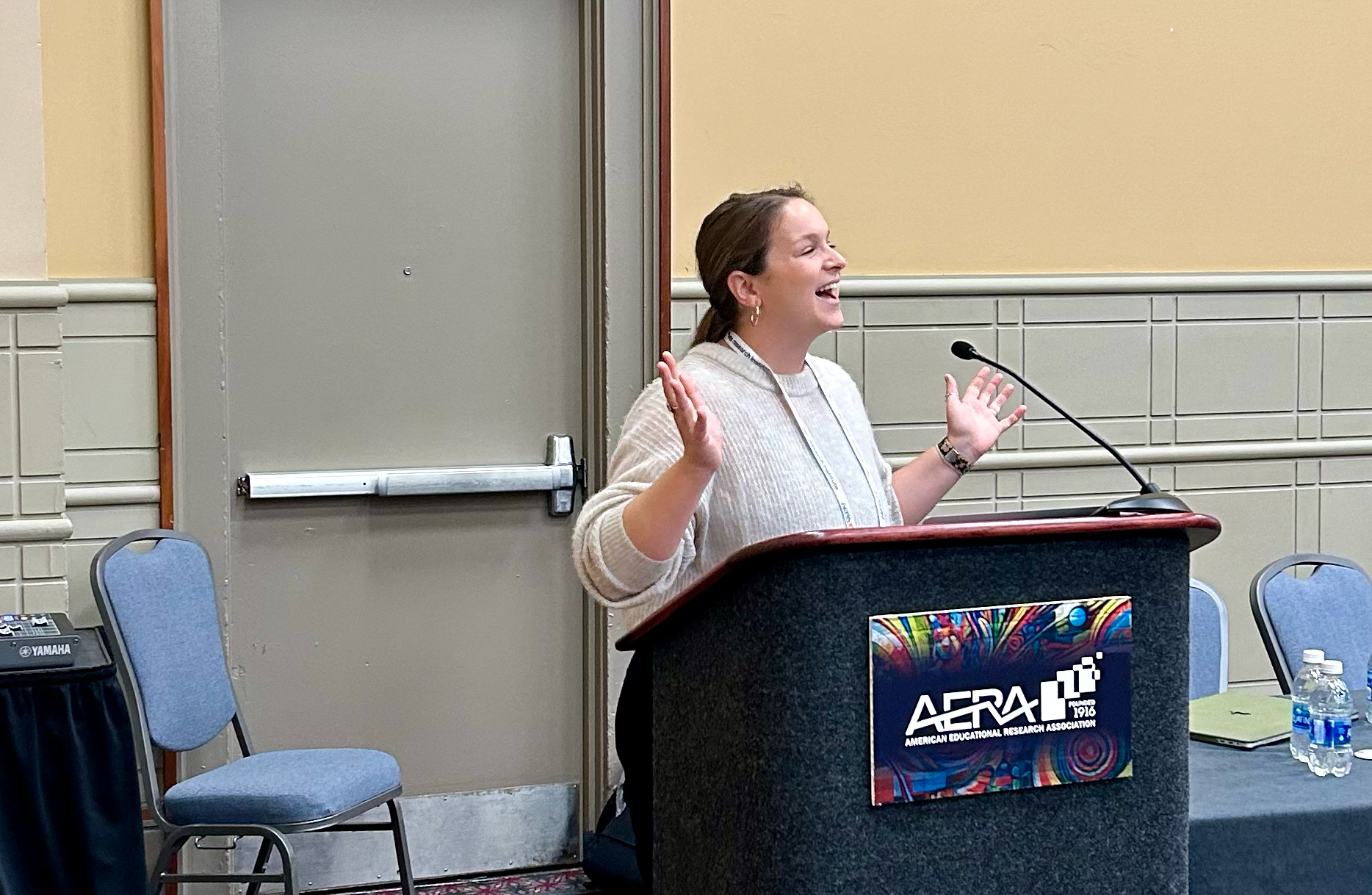More than 150 students, researchers, and faculty members at the UCLA School of Education and Information Studies will participate in the 2025 AERA Annual Meeting, April 23-27, in Denver, Colorado. It’s a great chance to share new research and ideas, develop new knowledge and skills, and catch up with friends and colleagues old and new. Here we share what some members of our community told us about why they attend AERA.
“Attending AERA provides me, as an early career scholar, an opportunity to engage in conversations about the most pressing issues in education and my area of expertise—the higher education trajectories of undocumented students and participatory action research as a transformative methodology. In particular, I look forward to attending AERA each year to learn with and from scholars across ranks with similar scholarly interests to mine, but from diverse contexts and backgrounds. This gives all of us as a community of educators and researchers the chance to reflect on what we know, how we have come to know what we know, what we still need to know about collective interests, and how we can get there through creativity and transformative methods. For me, being in community during these challenging sociopolitical times is even more critical to form coalitions and foster partnerships with scholars who are committed to social justice in education, particularly as it relates to undocumented communities.” – Cinthya Salazar, Assistant Professor of Education
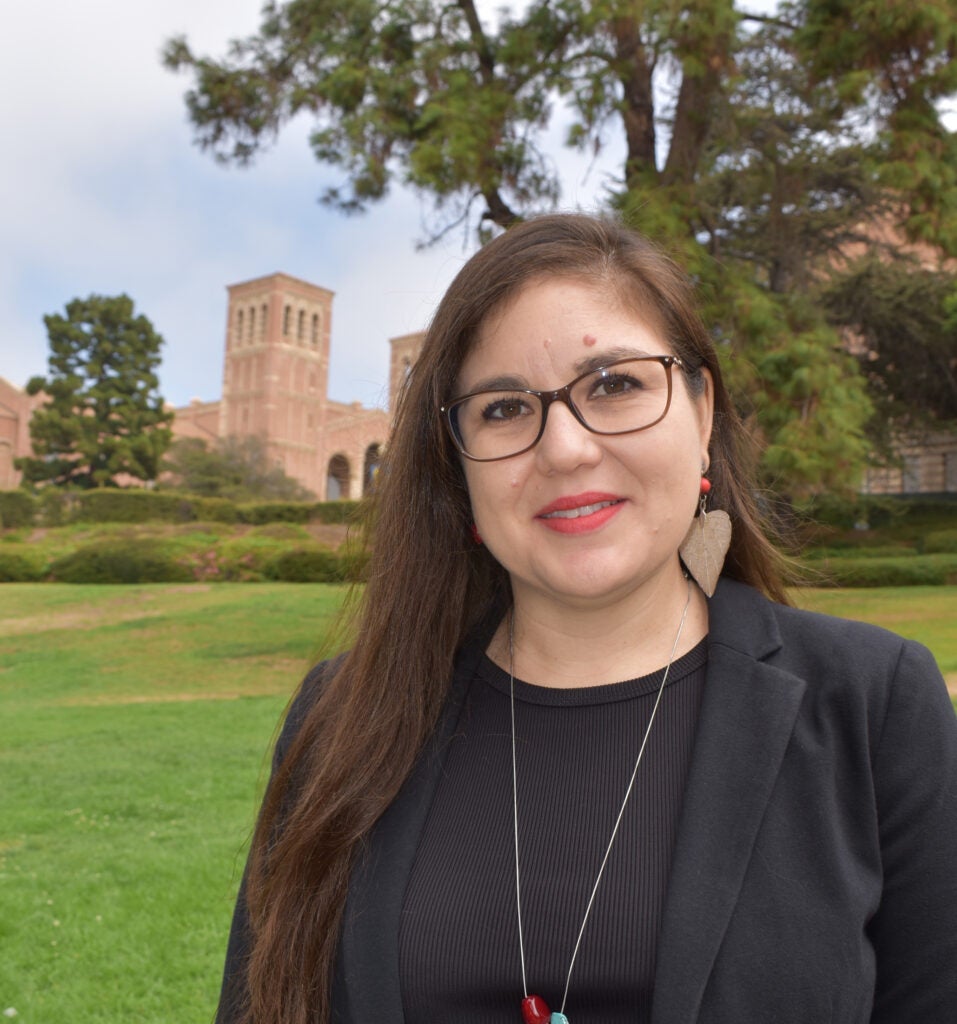
“AERA serves as a unique forum where people from diverse walks of life can come together across generations, institutions, disciplines, and geographies to exchange knowledge, find inspiration, and forge new alliances. I always see AERA as an opportunity to build relationships with new people and places, and, in this precarious political moment, coming together as a field offers us unique opportunities to sharpen our commitments to disrupting injustice and imagining alternative futures in and through education.” –Christopher Jadallah, Assistant Professor of Environmental Justice in Education
“Attending AERA as a graduate student is a bit overwhelming, but an incredible opportunity to learn from others in the field and apply emerging research to our team’s work here at UCLA. One of the best pieces of advice we are given is to “not do AERA alone.” I spend time selecting sessions with other graduate student researchers at the UCLA Center for Community Schooling that connect to our state policy work. Attending relevant sessions together enables us to process our learning, bring key ideas back to the broader team, and forge relationships with other researchers who can inform our work over time. It is rewarding to have other researchers and scholars connect to your ideas and ask questions. We get to share insights that inform knowledge and inspire the spread of good work! And, we get to build our presentation and networking chops along the way!” –Natalie Fensterstock, PhD Student
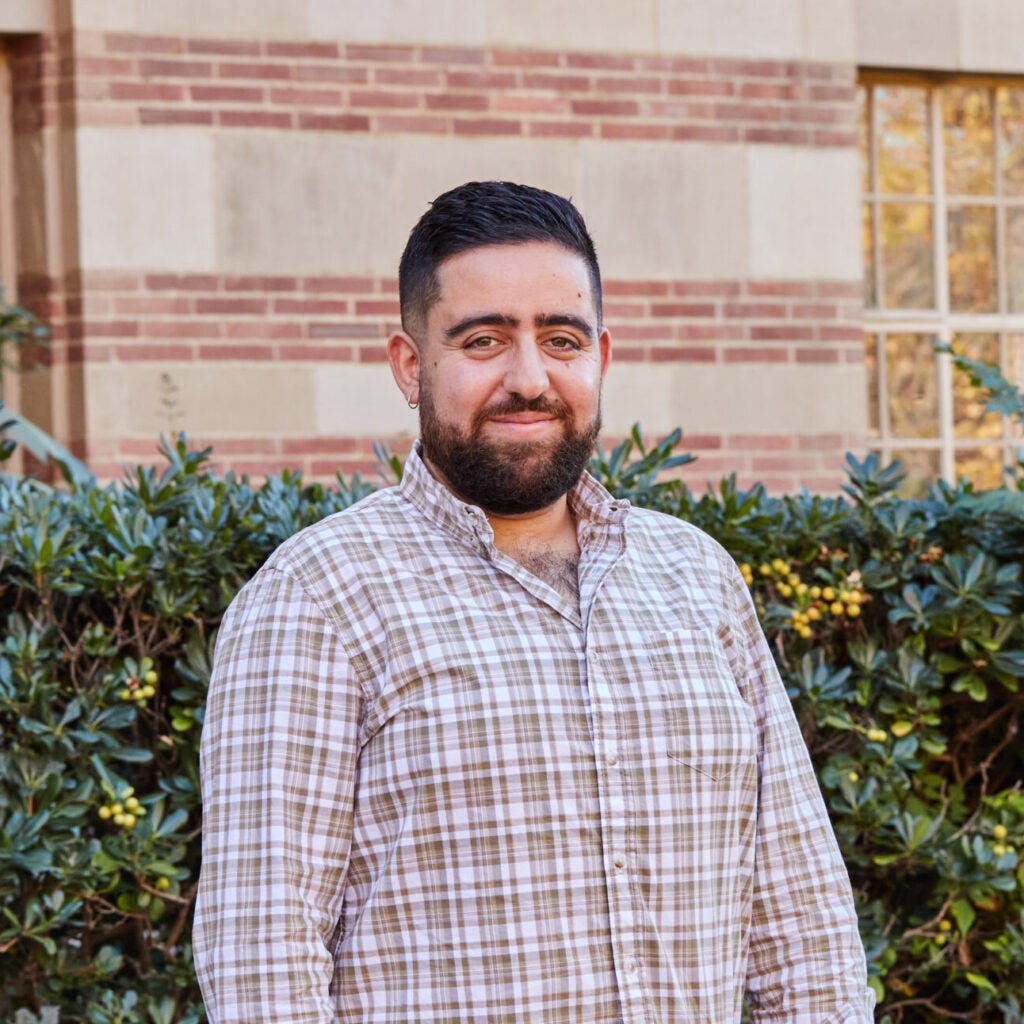
“AERA is the premier voice in educational research. Each year I look forward to reconnecting with colleagues, learning about cutting-edge research, and participating in discussions about pressing issues across the educational landscape. Another highlight is observing students gain valuable skills as they prepare for careers in research and policy. AERA is the one conference I always encourage students to attend because of the networking and knowledge-rich environment.” –Lori Patton Davis, Professor of Education, Heyman Endowed Chair
“AERA is invaluable to the education field. It sets the cadence or rhythm of the academic year and the trajectory of much research, from inception through study, presentation, project writing and eventual publication. The conference cycle galvanizes both students and faculty to set goals for up-coming research initiatives. It motivates student research that corresponds with many of our graduate program milestones. Increasingly, AERA and its 12 thematic divisions are providing our graduate students with fruitful opportunities to share their research at its earliest stages of development as well as. For more seasoned researchers with national and international collegial connections, it provides an important venue for continued and new collaborations with our varied intellectual communities.” –Alison Bailey, Professor of Education
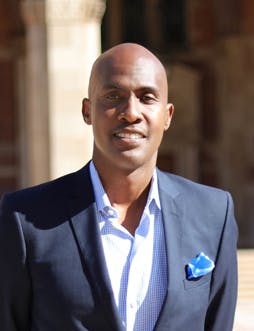
“AERA is important for education scholars for so many reasons. One, it helps to create and build community with other scholars and practitioners in the field. Community building is key to success in any profession. Second, you get access to an extensive number of presentations from some of the top education thinkers in the world. You get to learn about their research, policy suggestions, and practice recommendations. Third, even for established scholars, AERA is a time to think about your own work, new works, and how education research can and needs to be connected to real-world issues. And finally, for newer scholars, it is an amazing way to build a network, share your ideas and knowledge, and build your national identity as a scholar.” –Tyrone C. Howard, Pritzker Family Endowed Chair, Professor of Education, and Past AERA President, 2024
“While the AERA Conference can feel overwhelming – because there are so many great sessions to visit and learn from – what I value most about AERA is the opportunity to reconnect with my educational research family. Sharing a hug, a laugh, or a meal with incredible scholars and educators from around the world at AERA, while also hearing them speak passionately about their current work and most recent findings, always leaves me thankful and inspired.” –Jean Ryoo, Director of Research, Computer Equity Project at Center X
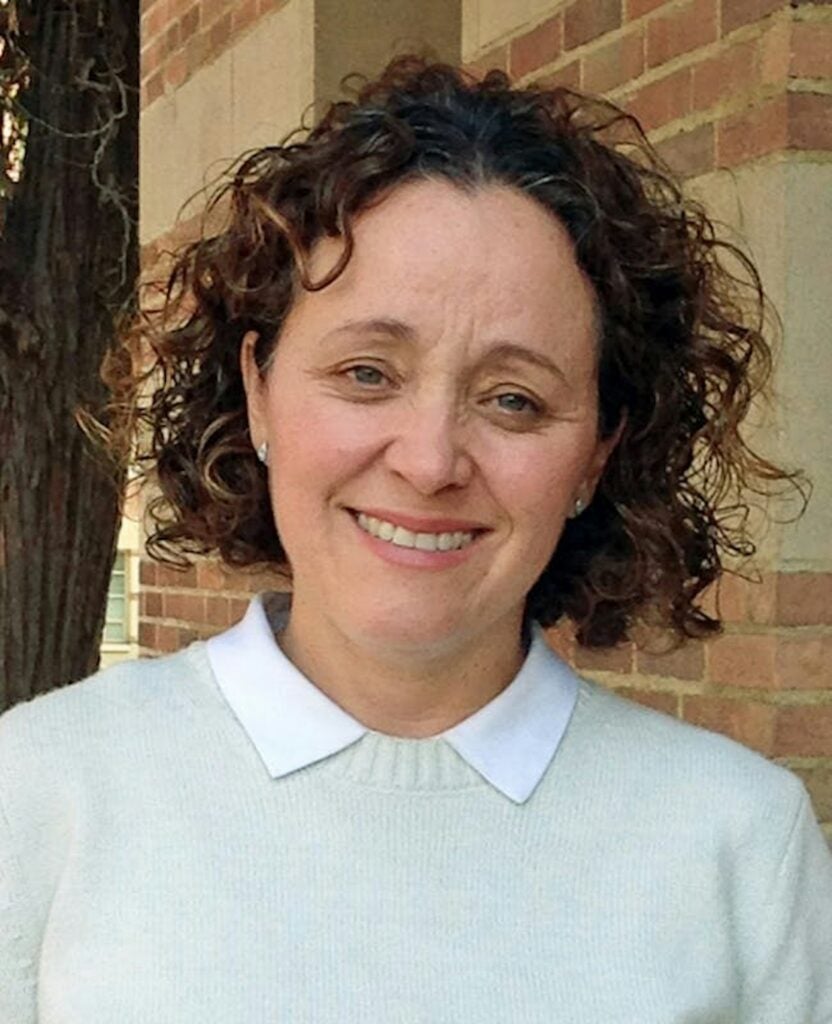
“AERA is really important for my students and for me as a mentor as well. I have four current students at AERA presenting in various places, and a lot of former students here too, and it is crucial for them to get this experience. A lot of time in these joint papers that we’re doing, I’m very purposeful to have them presenting, to have them leading the conversations, answering the questions. It gives them a lot of exposure to talk to journalists, to talk to people who are writing about the research. Our hope is that in the future, they’re going to be the professors, they’re going to lead the studies, they’re going to be the public scholars. This is a great experience for them, and as a mentor, I get to see them in action. I get to be proud of them and also give them feedback, so that the next time that they do it, especially when it’s their first time, they feel more confident about all the knowledge and all the skills that they’ve gained. Lucrecia Santibañez, Professor of Education, Faculty Co-Director, UCLA Center for the Transformation of Schools
“Having students come to AERA is partly about helping AERA, because students bring new ideas and new information to the collective, and at the same time, they become a part of the collective and get to learn with and from the community. Being at AERA is about building coalitions, building community, and learning from each other. They’re part of that already, and it’s really important for them to be able to participate in that and share with family and learn from other people. Megan Franke, Professor of Education, Vice Chair of Professional Programs
The SEIS Office of Communications will be updating this post throughout the AERA Annual Meeting, April 23-27. To share your thoughts, experiences, and photos from AERA, please submit this Google form.
Above: Natalie Fensterstock, PhD student
